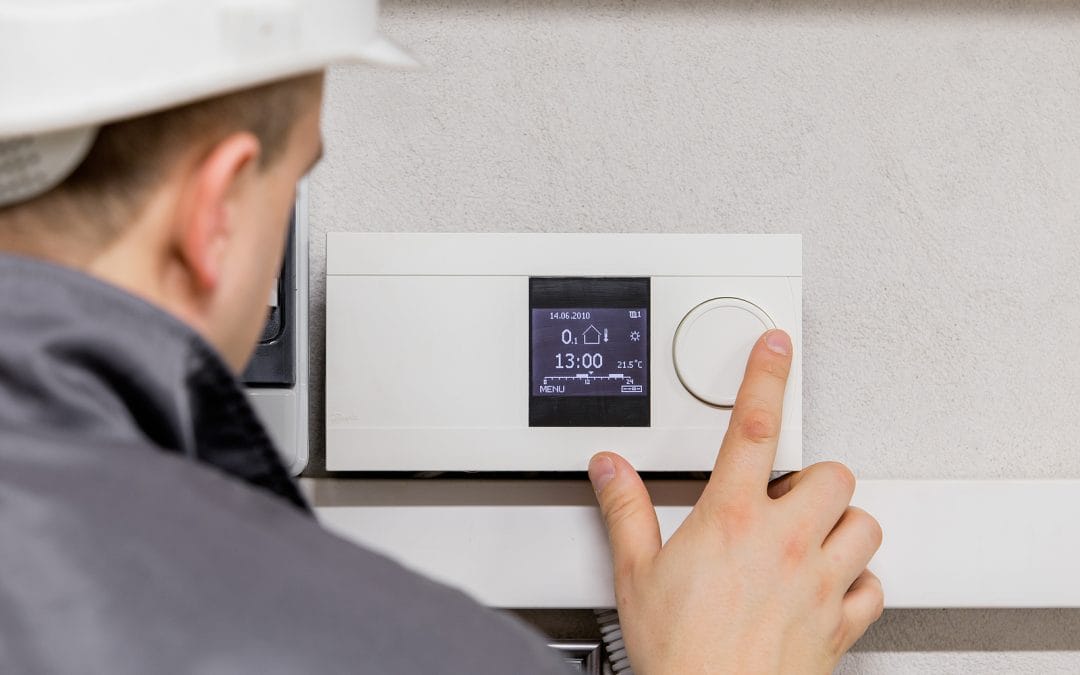Despite a remarkably hot summer, the autumnal chill has hit more quickly than many have expected, and with weather conditions switching from balmy late summer days to sudden downpours in a matter of seconds, many people are starting to get ready to turn their heating back on.
This can be simpler or more difficult depending on whether you have had your boiler professionally serviced or are going to in the next few weeks before winter starts to bite harder.
Some maintenance tasks, such as switching the boiler on, programming the thermostat so the heating comes on at the right time, bleeding the radiators and activating the fill loop so the boiler pressure is at the right level, are simple and safe enough that most homeowners could do them by themselves.
However, there are several jobs where an engineer on the Gas Safe Register is vital in order to keep you and your home safe, including annual boiler servicing, inspections and most jobs that would necessitate an emergency call out.
There are several jobs, in particular, that require specialist professionals with particular expertise in order to completely repair, clean or maintain your property. Here are some of the biggest.
Power Flush
Over time, sludge, rust, debris and water deposits can build up in your heating system, which can cause issues with your heating system, forcing it to work harder and less efficiently. This can ultimately lead to a boiler breaking down long before it should.
One potential solution to fix this is a power flush, a process which involves blasting water at considerable speeds through your central heating system in order to dislodge any blockages or potential blockages, ensuring your heating system will work more efficiently and save you money.
The issue is that, unlike bleeding radiators to remove trapped air, which only needs a key or a screwdriver to do, power flushing requires dedicated equipment, chemical neutralisers and a lot of expertise in order to get it right.
Even if you could theoretically get the equipment, getting the pressure wrong or choosing the wrong chemicals in the wrong concentration can break seals and crack water pipes, causing leaks throughout a house and turning a central heating frustration into an emergency.
Deep Cleaning A Boiler
In general, any task that involves opening up the boiler components themselves is something only the professionals should do, even if you are not touching anything that could affect the gas connection. This will void your boiler warranty and potentially put people in danger.
In particular, a boiler deep clean is something to avoid attempting unless you are a qualified, certified expert who knows what to do and what the risks are.
Typically, a deep clean involves taking apart the seals, burners, heat exchanges and other components, using acidic inhibitors to remove deposits from the boiler before rinsing the system with neutralisers and putting the boiler back precisely as it was and pressure testing it to avoid any leaks.
Any gas leak is potentially fatal due to the potential for carbon monoxide poisoning and increased fire risks, particularly if the boiler is located in a kitchen where a lot of heating equipment and naked flames could be.
However, the risks of a fire can be found in any room where the gases are allowed to build up for long enough, as even a light switch can provide a spark that can start a fire in the wrong circumstances.
Replacing A Boiler
Nearly every aspect of replacing a broken boiler will need a professional, from identifying that a boiler is beyond repair, to disconnecting the gas connection and water pipes, to pressure testing and ensuring the new boiler is working correctly.
Even removing the casing from the front of the boiler may be illegal if it is more than just decorative in function.
In general, it is against the law to install a gas boiler yourself, as well as service it or replace it. It is still illegal even if you have that work checked by a Gas Safe engineer after the fact.
The reason for that is that boilers are complex and precise pieces of engineering that are designed to be fitted to relatively exacting standards and tolerances.
It is easy for those details to be missed by someone unfamiliar with working with gas equipment, and even a certified engineer could potentially miss a potentially fatal flaw if it is relatively small and innocuous.

